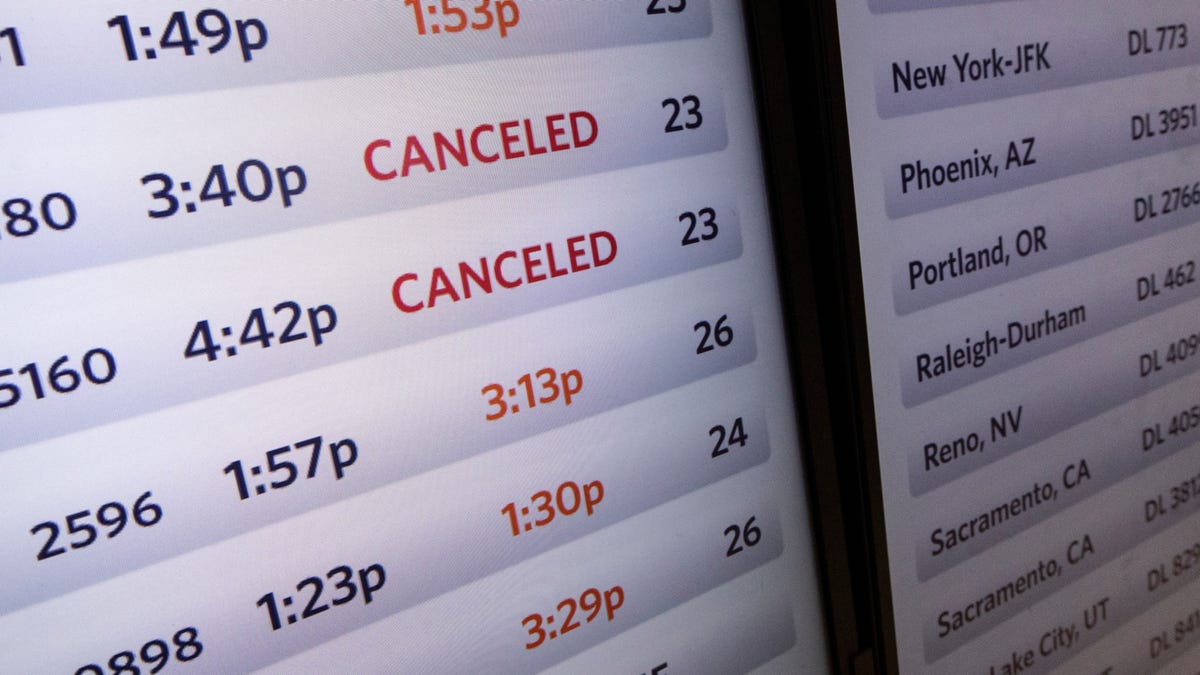Claims for travel insurance are getting denied 33% more often: Here are 5 reasons yours might not get approved
Travel insurance serves to alleviate unexpected financial burdens when your trip doesn’t go as planned, whether it’s having to book an airport hotel due to a canceled flight or needing medical assistance overseas.
With air travel reaching all-time highs, more travelers are opting for travel insurance before embarking on their journeys—and they’re putting it to good use. Claim submissions for travel insurance have surged by 22% over the previous year, as per Squaremouth, a platform that compares travel insurance. Moreover, following a global tech failure that stranded numerous passengers this summer, the benefits of having travel insurance have never seemed clearer.
However, not all travel insurance claims are accepted, leaving some travelers disappointed. Just purchasing travel insurance doesn’t automatically guarantee reimbursement for every travel-related setback. “Many individuals assume that all unfortunate events during their trip will be covered, but that’s not how it works,” remarked Jenna Hummer, PR director at Squaremouth, in an interview with YSL News.
In fact, alongside the increase in submissions, travel insurance claim denials have also seen a significant rise, with a 33% increase compared to last year according to data from Squaremouth.
The acceptance of your claim hinges on various factors, including the type of coverage you’ve selected and whether you can provide adequate proof of expenses, such as receipts and medical notes. Hummer advises travelers to “familiarize themselves with their policy” and understand what’s covered.
Here are the five main reasons your travel insurance claim might be denied.
1. You’re experiencing inconvenience, but not a true interruption
While it would be convenient for travel insurance to cover every negative aspect of your trip, that’s generally not the case.
“Issues like not enjoying yourself or having rain ruin your beach vacation are usually not included,” explained Hummer.
2. Lack of documentation
If a scenario that is covered by your policy occurs, such as falling ill and needing to cancel your trip using your medical coverage, it’s essential to retain the doctor’s note and receipt to expedite your claim process. Without proof of your incurred expenses, many claims won’t be reimbursed.
Keeping well-organized travel records is equally important. “It becomes a significant hassle later when you’re sorting through piles of receipts to compile everything,” Hummer noted. (If a receipt is misplaced, bank or credit card statements can often be a helpful alternative.)
3. The disruption isn’t included in your policy
Experiencing flight delays is frustrating, yet your lengthy delay might not be covered by your travel insurance.
“For coverage to apply, the incident must be explicitly listed in your policy,” Hummer stated. Some policies may only cover missed connections or delays beyond a certain threshold. It’s crucial to read the terms closely or consult with insurance providers to understand what’s included before purchasing coverage.
When a disruption happens, reach out to your insurance provider without delay. “Don’t hesitate; call the insurance company first, not the airline they will guide you step-by-step on how to get your claim processed,” she advised.
While there is an option known as Cancel for Any Reason, which allows cancellation up to the day before the trip, Hummer typically doesn’t recommend it. “It can be a costly addition,” she said. However, if someone anticipates needing to cancel for personal reasons, such as mental health concerns or anxiety about flying, this could be a sensible choice.
4. You purchased your travel insurance too late
Comprehensive travel insurance typically covers incidents caused by severe weather, such as hotel power outages due to storms. However, if a major weather event, like a hurricane, has been announced, purchasing insurance at that point is no longer an option.
If bad weather is already happening, expect no coverage. “Once a situation has occurred, it’s considered foreseeable,” Hummer pointed out.
A general guideline is to buy insurance as soon as you finalize your travel plans to ensure maximum coverage.
5. A prior medical condition could make you ineligible for your policy
It’s unfortunate, but travelers with pre-existing health issues might find out they’re not qualified for the policy they bought only after claiming
This type of coverage is often essential for certain travelers.
Many travel medical insurance plans do not cover existing chronic conditions or illnesses, including heart disease, previous injuries, pregnancies, or if you’re going abroad for elective medical procedures such as cosmetic surgery. “This is one of the main misunderstandings we aim to clarify for travelers,” explained Hummer. Just visiting a doctor for an issue like a bad knee without a formal diagnosis can classify it as a pre-existing medical condition by your insurer.
Several insurance providers will cover individuals with pre-existing medical conditions, as long as there have been no symptoms, doctor visits, or any deterioration of the condition during the “look-back period.” This period typically lasts between 60 to 180 days, but it can differ depending on the provider. “It’s crucial to ensure you have the coverage you require,” Hummer stated. “The best approach is to contact the travel insurance provider directly for a thorough review of your coverage.”
It’s also vital to do this as soon as you book your trip, since waivers for pre-existing conditions are time-sensitive.

